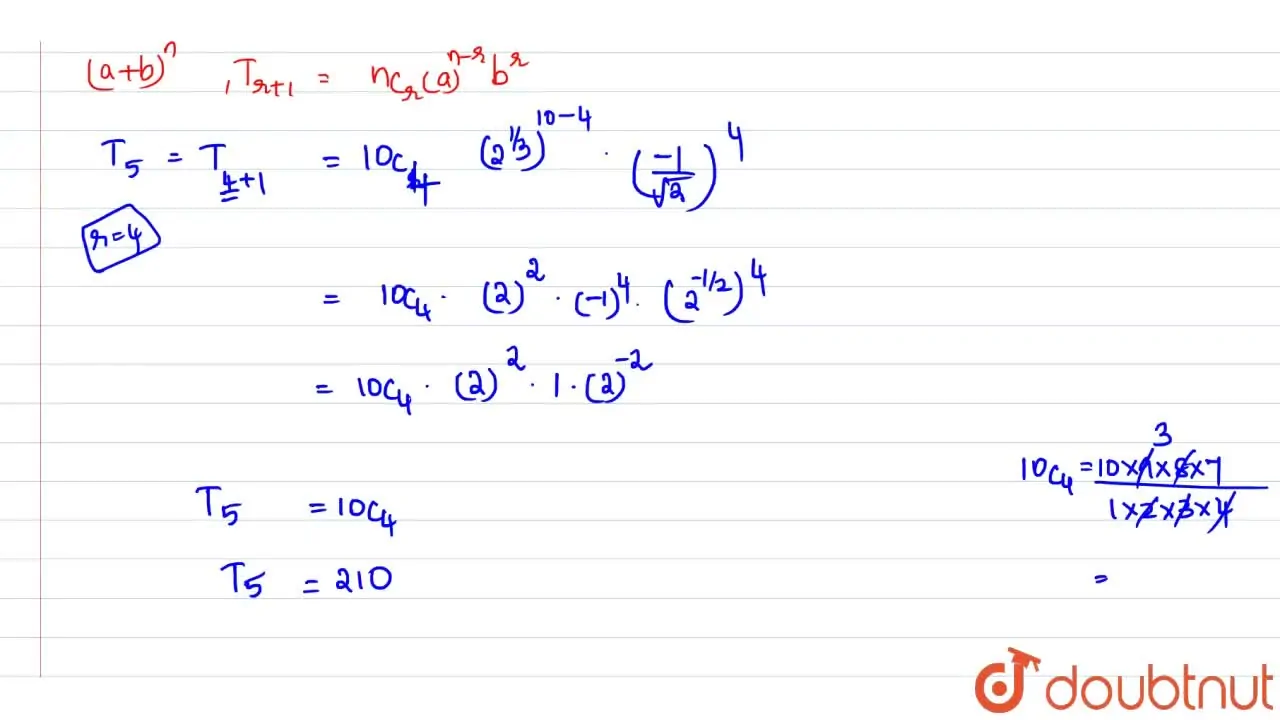If the last term in the binomial expansion of (21/3−1√2)n
is (135/3)log38, then the 5th term from the beginning is Solution in Malayalam
210
420
105
None of these
The correct Answer is:A
Step by step video, text & image solution for If the last term in the binomial expansion of (2^(1//3)-(1)/(sqrt(2)))^(n) is ((1)/(3^(5//3)))^(log_(3)8), then the 5th term from the beginning is by Maths experts to help you in doubts & scoring excellent marks in Class 11 exams.
Similar Questions
If the seventh term from the beginning and end in the binomial expansion of (23+133)n, are equal, find n.
02:26View SolutionIf the last tem in the binomial expansion of (213−1√2)nis(1353)log38 , then 5th term from the beginning is 210 b. 420 c. 105 d. none of these
05:14View SolutionRatio of the 5th term from the beginning to the 5th term from the end in the binomial expansion of (21/3+12(3)1/3)10 is
05:11View Solutionद्विपद, 3√2+1(3√3)n में n ज्ञात कीजिए, यदि प्रारंभ से 7 वें पद का अंतिम पद से 7 वें पद से अनुपात 16 है।
02:49View SolutionIf the last tem in the binomial expansion of (2^(1/3)-1/(sqrt(2)))^n i s(1/(3^(5/3)))^(log_3 8) , then 5th term from the beginning is 210 b. 420 c. 105 d. none of these
05:47View SolutionRatio of the 5th term from the beginning to the 5th term from the end in the binomial expansion of (21/3+12(3)1/3)10 is
11:32View SolutionIf the last tem in the binomial expansion of (213−1√2)nis(1353)log38 , then 5th term from the beginning is 210 b. 420 c. 105 d. none of these
05:46View SolutionRatio of the 5^(th) term from the beginning to the 5^(th) term from the end in the binomial expansion of (2^(1//3)+(1)/(2(3)^(1//3)))^(10) is
07:22View Solution


